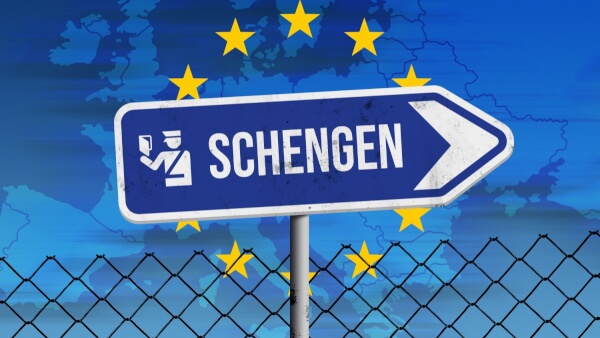How to apply for a Netherlands Schengen visa from the UK
Read this guide to applying for a Netherlands Schengen visa from the UK. Learn visa requirements, fees, and the official application process for short stays.

Moving from India to the UK, and want to bring your pet with you? It is possible, but there are some key steps you’ll need to follow. And of course, you’ll need to complete some paperwork.
In this guide, we’ll run through all you need to know about pet transport from India to the UK. This includes requirements for pet passports, health certificates, microchips and vaccinations.
Of course, there will inevitably be expenses involved in transporting dogs, cats and other animals between countries. Get yourself a Wise card and you can easily cover these costs in multiple currencies, for low fees and fair exchange rates.
Please see the Terms of Use for your region or visit Wise fees & pricing for the most up-to-date information on pricing and fees.
Here are the steps you’ll need to follow to bring your pet over to the UK:¹
All pets coming to the UK will need to be microchipped, and vaccinated against rabies. This should ideally be done at the same time, or you’ll need to make sure you get the microchipping done before the vaccination.³
Microchipping can only be done by a vet, or a veterinary nurse or student vet under the supervision of a vet. Microchips need to meet ISO standards ISO 11784 and ISO 11785 so that they can be read by UK customs officials.⁴
For rabies vaccinations, this can only be carried out on pets that are at least 12 weeks old.³
India is not on the list of Part 1 or Part 2 listed countries who can bring pets to the UK with fewer requirements. So, here are the special rules that apply for vaccinations:³
Pet passports are issued by authorised vets, and list the treatments a particular animal has had (e.g. vaccination records). They’re used for pet transport to the UK from certain ‘Part 1’ listed countries, including those in the EU.
India isn’t on this list, which means that you won’t be able to get a pet passport from India to the UK. Instead, you’ll need a Great Britain pet health certificate.²
You can get one from a vet, and your pet must arrive in the UK no more than 10 days after it has been issued.⁵
Everything we’ve covered so far applies only to dogs, cats and ferrets. If you want to bring another animal into the UK, you’ll need to follow import and export procedures.
To export your pet out of India, you may need to provide the following:⁶
To import your pet into the UK, here’s what you need to know:⁷
If your pet needs to be put into quarantine upon arriving in the UK, it’s usually for up to 4 months.⁷
Got all your paperwork sorted and are now ready to move to the UK from India? Now it’s time to think about how you’ll actually transport your pet from India to the UK.
Some countries can choose from sea freight as well as air travel. However, pets coming from India will need to come by air.
Pets can only travel into the UK through approved airlines, arriving at approved airports, which are:⁸
However, it’s worth noting that Virgin Atlantic Airways has paused its pet service until further notice.
British Airways works with a sister company, IAG Cargo, to transport pets to the UK.
For both British Airways and Virgin Atlantic Airways (when its pet service is available), pets must be booked to travel in the hold. They won’t be able to travel with you in the cabin. The only exception to this are recognised service dogs.⁹
Like with costs of moving from India to the UK, there are fees involved in transporting a pet from India to the UK. You’ll need to pay for microchipping and vaccinations (if needed), along with getting a health certificate issued by a vet.
And then there’s the cost of travel, as you’ll usually need to pay to book your pet onto a flight. Additional costs may include quarantine and customs charges.
Speaking very generally, the typical cost of moving a pet abroad is anywhere between £500 and £1,500 (roughly 50,000 INR - 150,000 INR) for cats. Average costs increase to between £1,000 and £4,000 (roughly 100,000 INR - 400,000 INR) for dogs.¹⁰
Some of these costs will need to be paid in INR, others in GBP. The easiest and most cost-effective way to cover all pet transport expenses is opening a Wise account.
You can send money between the UK and India whenever you need to with low, transparent fees and a fair mid-market exchange rate. You can also get an international Wise debit card, which is ideal for multi-currency payments both online and in person.
Please see the Terms of Use for your region or visit Wise fees & pricing for the most up-to-date information on pricing and fees.
After reading this, you should be all clued up on how to bring a pet from India to the UK. We’ve covered pet health certificates, microchipping, vaccinations, approved routes, quarantine and much more.
There’s quite a bit to do, but it’ll all be worth it when your furry friend joins you here in the UK. Good luck!
Sources used:
Sources last checked on date: 03-Mar-2023
*Please see terms of use and product availability for your region or visit Wise fees and pricing for the most up to date pricing and fee information.
This publication is provided for general information purposes and does not constitute legal, tax or other professional advice from Wise Payments Limited or its subsidiaries and its affiliates, and it is not intended as a substitute for obtaining advice from a financial advisor or any other professional.
We make no representations, warranties or guarantees, whether expressed or implied, that the content in the publication is accurate, complete or up to date.

Read this guide to applying for a Netherlands Schengen visa from the UK. Learn visa requirements, fees, and the official application process for short stays.

Applying for a German Schengen visa from the UK? Read our complete guide covering required documents, fees, application steps, and advice.

Explore ski resorts in Switzerland for luxury, family holidays and group getaways. Get tips for packing, dining, staying safe and saving money with Wise.

Explore the best ski resorts in Italy for luxury escapes, family holidays and group getaways. Get tips for packing, dining, staying safe and saving money.

Read our complete guide to the Taiwan digital nomad visa, covering fees, documents, eligibility requirements and application process.

Read our complete guide to the Romania digital nomad visa, covering fees, documents, eligibility requirements and application process.